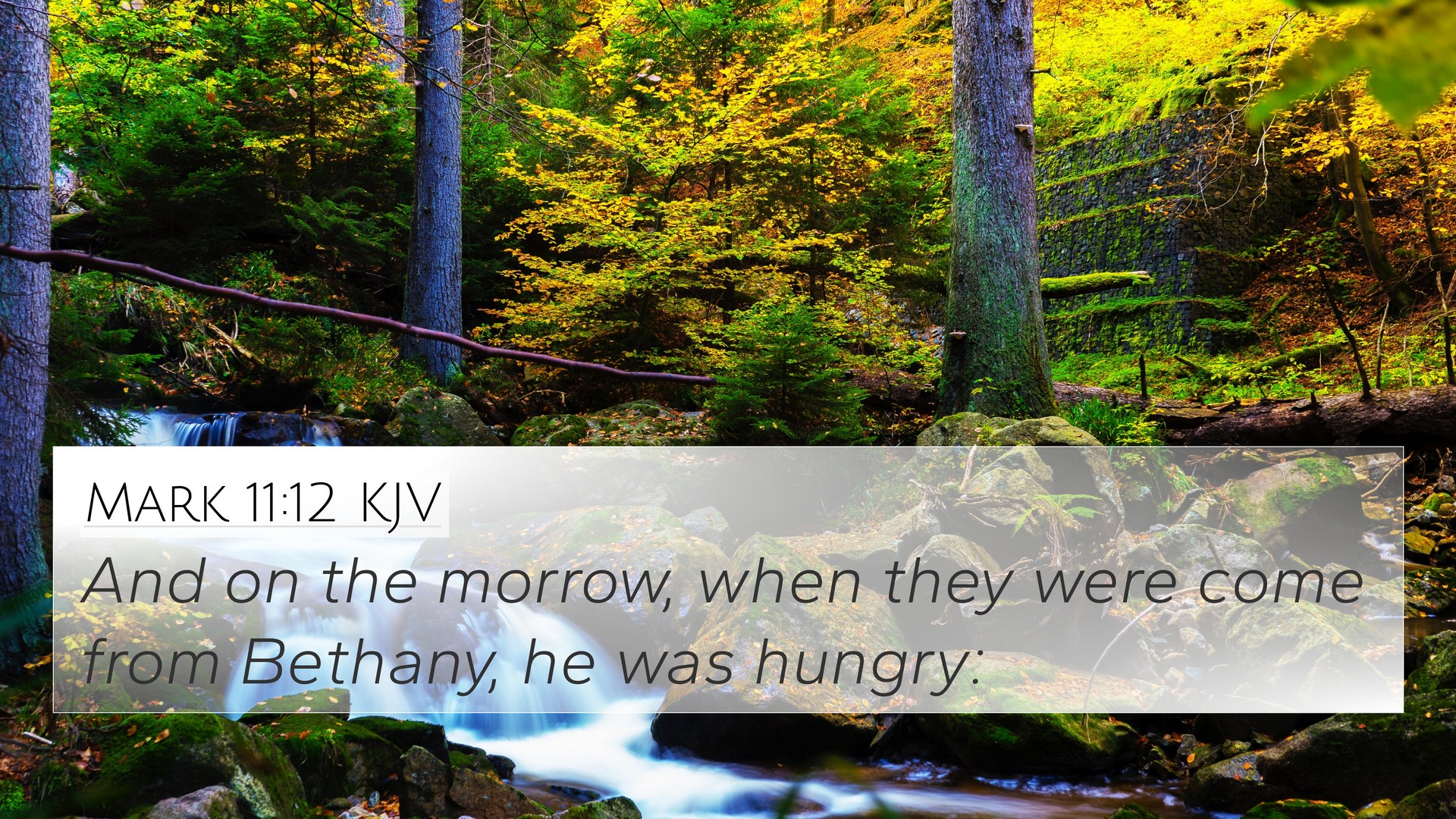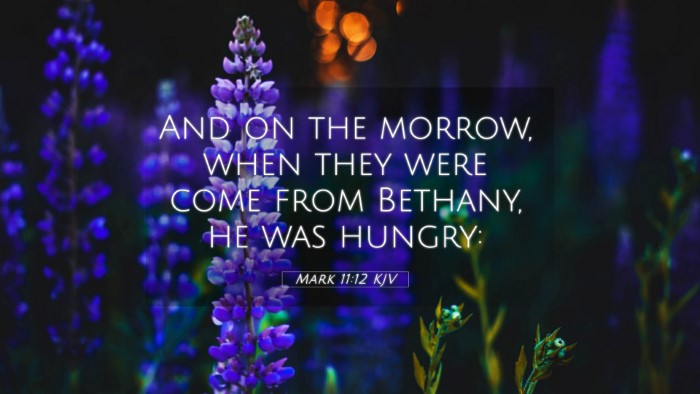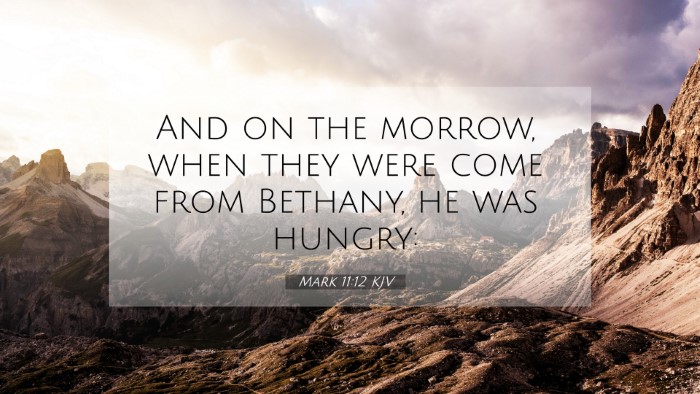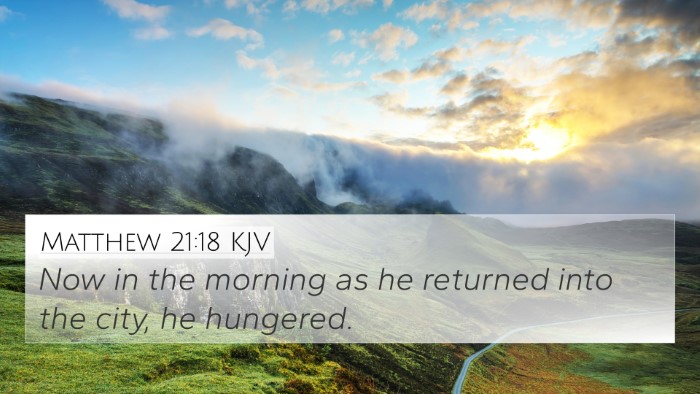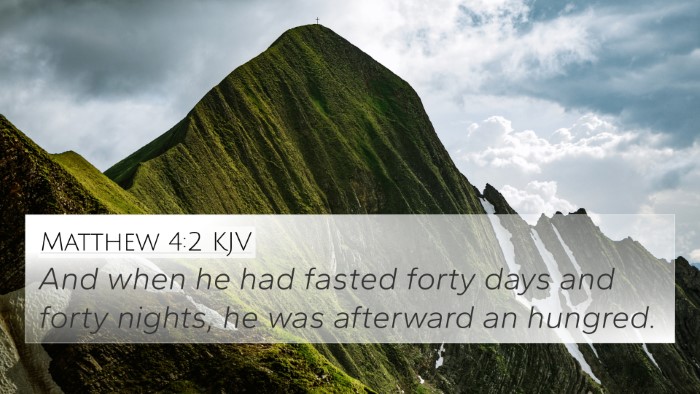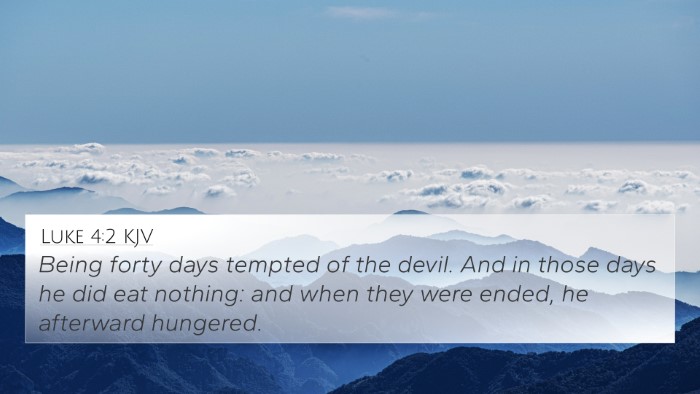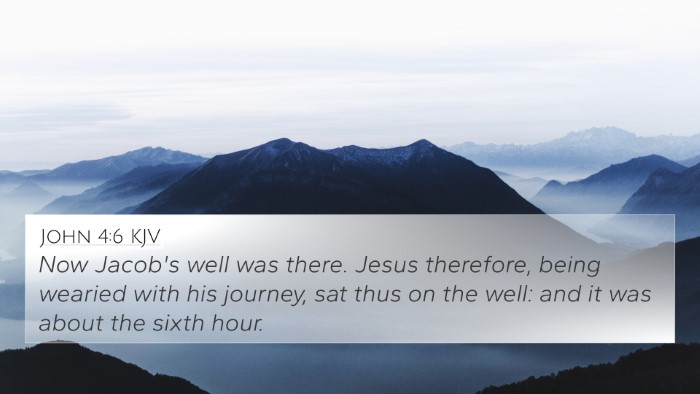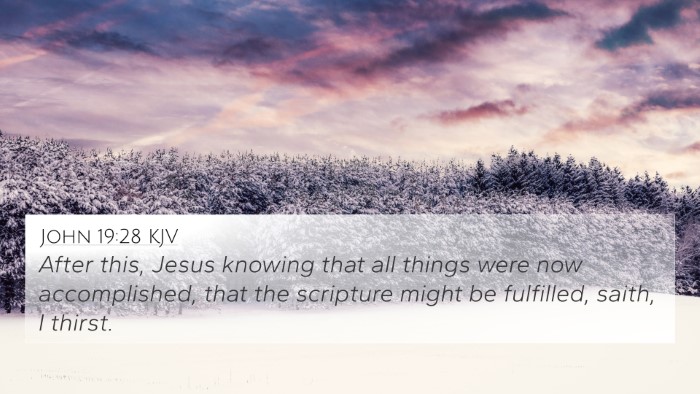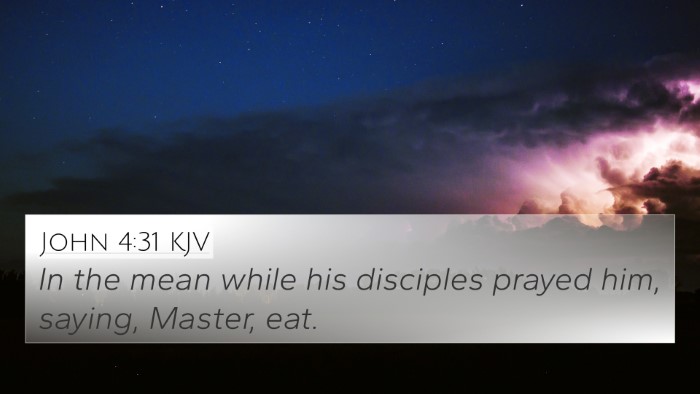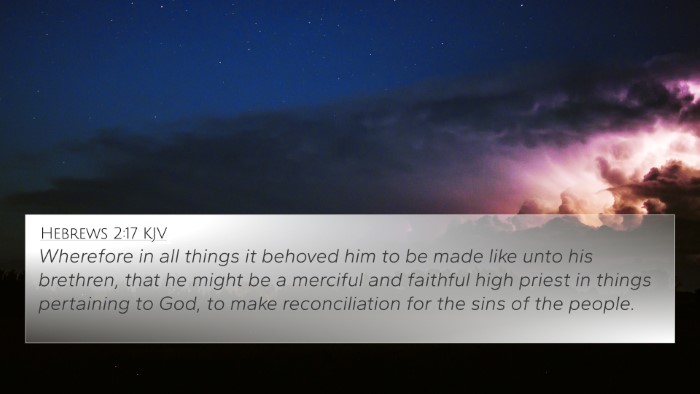Understanding Mark 11:12: A Comprehensive Exegesis
Mark 11:12 states: "And on the morrow, when they were come from Bethany, he was hungry." This seemingly simple verse holds profound theological implications, capturing a moment in the life of Jesus that reflects both His humanity and messianic mission. The insights drawn from public domain commentaries by Matthew Henry, Albert Barnes, and Adam Clarke enrich our understanding of this passage and create a deeper engagement with the Scriptures.
Context and Setting
This verse takes place the day after Jesus' triumphal entry into Jerusalem. The incident underscores Jesus' approach to fulfilling His mission during the final days before His crucifixion.
Matthew Henry's Commentary Insights
Matthew Henry highlights the significance of Jesus' hunger as a reflection of His true humanity. He emphasizes that Christ, though divine, experienced human needs and emotions:
- Human Experience: Jesus exhibited physical needs like hunger, which connects Him to the human condition.
- Preparation for Teaching: This moment sets the stage for the subsequent parable of the barren fig tree, linking physical hunger to spiritual barrenness.
Albert Barnes' Commentary Insights
Albert Barnes provides a deeper exploration of this event, highlighting its implications regarding Jesus' authority and the expectations of His ministry:
- The Nature of Christ's Hunger: Barnes points out that Jesus’ desire for food exemplifies His genuine humanity, which is essential for theological considerations of the incarnation.
- Symbolic Undertones: He also notes that the fig tree represents Israel and serves as a metaphor for unfruitfulness, referring to the prophetic traditions that criticize Israel for not bearing spiritual fruit.
Adam Clarke's Commentary Insights
Adam Clarke brings attention to the specifics of the geographical and cultural context:
- Bethany's Location: Clarke mentions that Jesus’ choice of Bethany, close to Jerusalem, signifies His time was near and His journey purposeful.
- Practical Element: He also notes the practical implications of being hungry while journeying, emphasizing that even leaders and prophets have basic needs.
Thematic Bible Verse Connections
Mark 11:12 resonates through various themes within Scripture. Below are significant cross-references that link this verse to broader Biblical narratives:
- Isaiah 5:1-7: The vineyard metaphor connects with the idea of God's expectation for fruitful lives.
- Matthew 21:18-19: The account of the barren fig tree, elaborating on Jesus' message regarding spiritual fruitfulness.
- Luke 13:6-9: A similar parable reinforcing the theme of unfruitfulness among God's people.
- Psalm 78:18: A reminder of God’s provision and human complaint, paralleling the human experience of need.
- Hebrews 4:15: A reflection on Jesus' humanity, showcasing that He can empathize with our weaknesses.
- John 15:1-5: The metaphor of the vine and branches highlights the importance of remaining in Christ to bear fruit.
- Jeremiah 8:13: A lament mentioning the lack of fruitfulness, resonating with Jesus' message to Israel.
- Exodus 16:3: God's provision in the wilderness serves as a backdrop for understanding spiritual hunger.
Conclusion
Mark 11:12 invites readers to ponder the interconnectedness of human experience and divine purpose. Through the lens of commentaries and interconnected Scripture, this verse serves as a portal into broader themes of spiritual fruitfulness and the human condition.
Tools for Bible Cross-Referencing
Engaging in cross-referencing enriches Bible study. Below are tools and resources:
- Bible Concordance: A resource that helps locate specific words and themes across the Scripture.
- Bible Cross-Reference Guide: A compilation that assists in finding related passages efficiently.
- Comprehensive Bible Cross-Reference Materials: Collections that span topics, themes, and theological concepts in the Bible.
- Inter-Biblical Dialogue: Understanding how verses converse with one another enhances deeper study.
Engaging with the Text
As you study Mark 11:12 and its connections with other scriptures, consider how the themes of human need, spiritual hunger, and the call to bear fruit resonate in your life.
